Biden’s credibility on the line at Glasgow summit as his domestic climate agenda hangs in balance
US President Joe Biden is facing an uphill battle as he enters a make-or-break climate summit in Scotland, with his failure to deliver on his ambitious climate agenda casting a shadow over his message of urgency to the world.
For months, Biden made no secret of the fact that he wanted to participate in the COP26 climate talks in Glasgow with powerful measures signed into law to prove to the world that the United States was committed to his pledge to slash greenhouse gas emissions in half by 2030.
“We have to move, we have to move quickly to meet these challenges,” Biden told a virtual meeting of world leaders in April “The steps our countries take between now and Glasgow will set the world up for success to protect livelihoods around the world — and keep global warming at a maximum of 1.5 degrees Celsius. We must get on the path now, in order to do that.”
Biden brought the United States back into the Paris Climate Accord at the start of his presidency, reversing a decision by his Republican predecessor, Donald Trump, to withdraw from the agreement.
Months later, the president announced the US target for emissions cuts as part of an effort to convince other countries to set their own targets, too.
In order to nudge Congress into action, Biden inserted ambitious climate measures into the core of his domestic economic agenda, with both his multitrillion-dollar bipartisan infrastructure plan and a broader social safety net plan containing hefty funds to decarbonize the US economy.
However, as the UN summit gets underway, key components of Biden’s climate agenda are still in limbo because of infighting among his fellow Democrats and powerful fossil fuel lobbying in Washington.
As part of his push to slash emissions, Biden sought to end longstanding tax breaks for fossil fuels that cost an estimated $15-20 billion per year, and reward electricity companies for investing in renewable energy and penalize those that did not.
To Biden’s frustration, none of those measures has passed Congress, forcing the US president to leave Washington without a deal in hand to present at the UN summit.
“You have China and others questioning the U.S. ability to implement what it committed to and using that as a reason why they shouldn't be forced to do more than they've committed to, because countries like the U.S. talk a game that they're not delivering,” Alden Meyer, an expert on UN climate negotiations at the European think tank E3G, told NBC News.
While Democrats are still working to reach a compromise in the coming days, the lack of legislation will muddy Biden’s message in Glasgow, making it harder for him to convince the world that the United States is committed to tackling the climate crisis.
“It is possible to find middle ground in many areas of politics; I know, because I have done it,” said Massachusetts Senator Ed Markey. “But we cannot compromise on science. There isn’t a middle ground between a livable and unlivable world.”
White House officials have expressed hope that world leaders would understand that the legislative process in Washington is complicated and insist that the world’s largest economy can still meet its emissions targets.
Highlighting the frustration of progressive Democrats on Capitol Hill, Vermont Senator Bernie Sanders, wrote on Twitter, “How can anyone say they are ‘patriotic’ and ‘love their country’ when they refuse to act against the drought, flooding, forest fires and extreme weather disturbances which cause our nation so much destruction? Climate change is real. The US must lead the way in combating it.”
Scientists have warned that the stakes could not be higher and that failure at the Glasgow summit would hamper the world in its existential fight to limit the global temperature rise to 1.5 degrees Celsius.
Wrapping up a summit in Rome, leaders of the world’s 20 biggest economies acknowledged on Sunday that climate change presented a critical and urgent threat, but offered few concrete commitments to tackle the calamity.
They agreed to limit global warming to 1.5 degrees Celsius above the pre-industrial average but made only a vague pledge to achieve carbon neutrality “by or around mid-century.”
This will leave much of the heavy work to be done at the COP26 climate summit in Scotland, which Biden’s special climate envoy, John Kerry, has called the “last best hope” to prevent catastrophe.
We avenge the innocent until our last breath: Iran's parl. speaker
170 students, teachers martyred in ‘deliberate’ strikes on Iranian schools: Minister
Iran’s air defense systems down six advanced Hermes drones
US defenses overwhelmed by Iran’s drone and missile barrages: WSJ
IRGC says second US THAAD anti-missile unit destroyed
CNN journalists abducted by Israel while reporting on damage from Iranian strikes
Iran denies attacks on Oman as it warns of US-Israeli ‘false-flag’ ops
Iran knows where Netanyahu convenes his meetings: Ex-IRGC chief


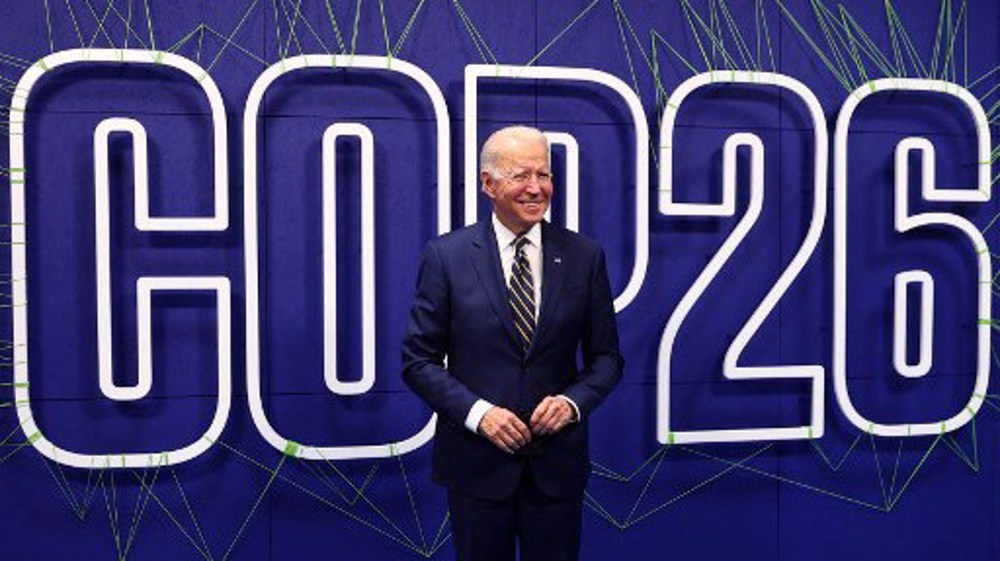

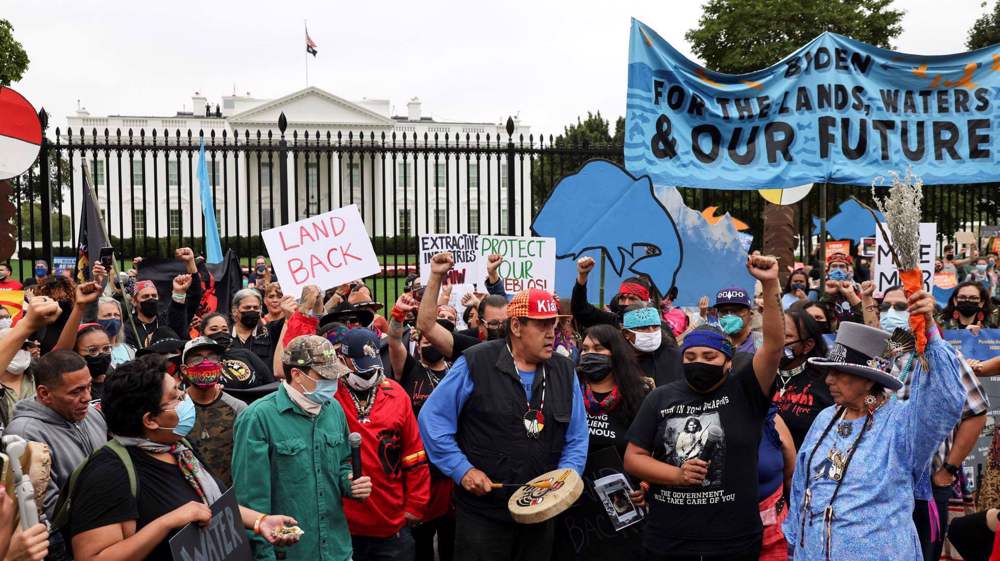
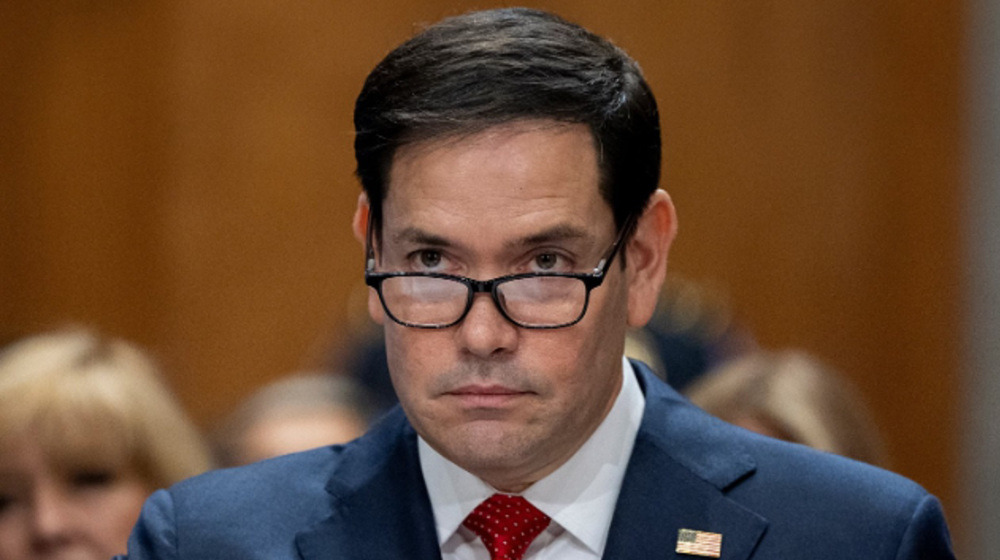

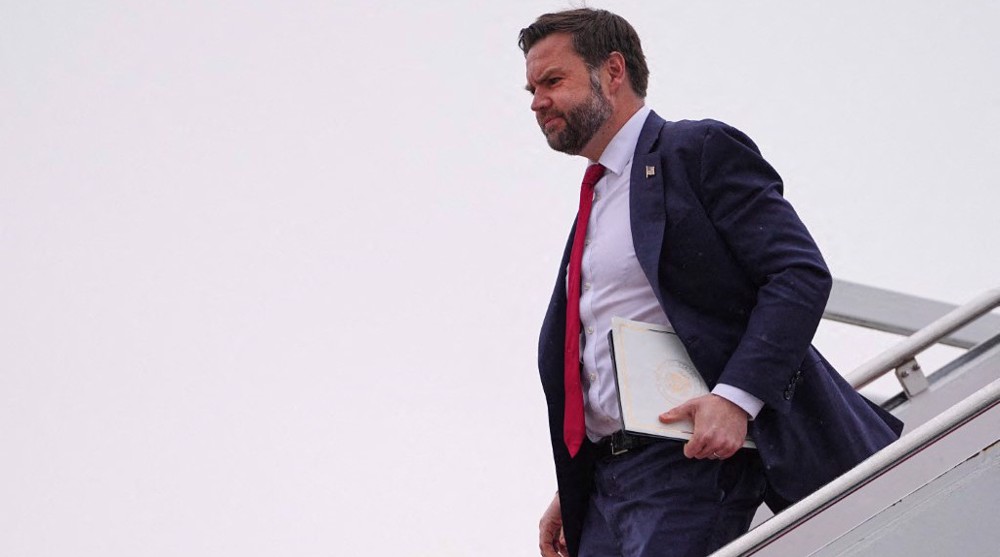



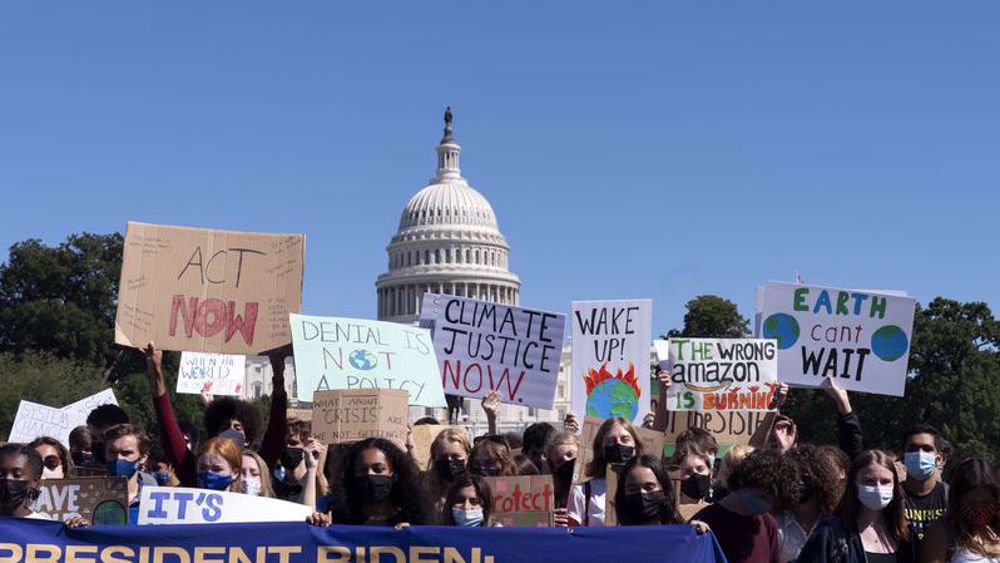
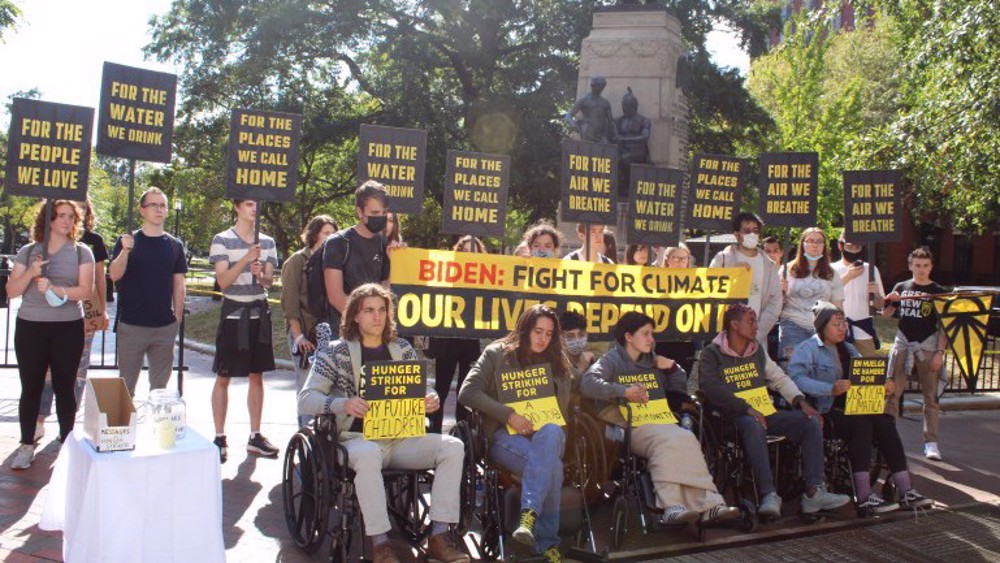
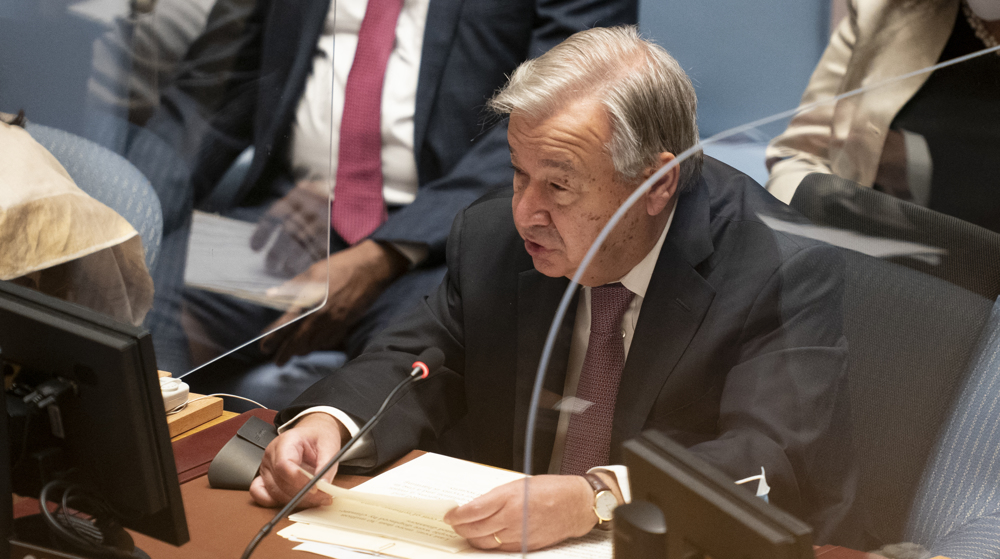


 This makes it easy to access the Press TV website
This makes it easy to access the Press TV website